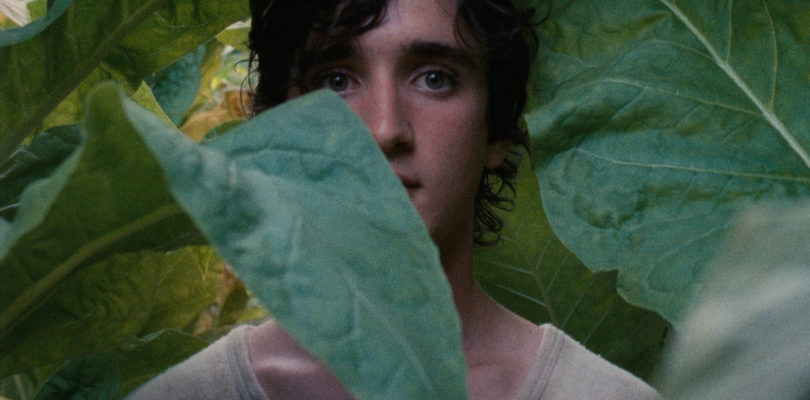
- Golden Globe Awards
Happy as Lazzaro (Italy)
Lazzaro Felice (Happy as Lazzaro), written and directed by Alice Rohrwacher, was presented in competition at the Cannes Film Festival, where it won for best screenplay.It tells the story, or modern parable, of Lazzaro, (Lazarus) who, like his biblical counterpart, is a kind young man who is miraculously reawakened by a wolf, decades after falling off a cliff.The story begins on an isolated farm in the rural countryside of Umbria called Inviolata (untouched, virgin). The simple peasants who tend to the tobacco plantations there – including Lazzaro – lead the simple life of the tenant farmers of 19th century rural Italy, in near feudal servitude. In fact, the action takes place in the 1980s, but the farmers have been kept in the dark of the outer world’s progress through the decades by the autocratic marquise who owns the house (Nicoletta Braschi) and the devious foreman who does her bidding.After his accident, Lazzaro makes his way to the city – and modern times – where he joins up with some of his old friends from the farm who, after being liberated from serfdom, now eke out a living on the outskirts of civilization, including Antonia (played by the director’s sister Alba Rohrwacher).Alice Rohrwacher was born in 1981 in Fiesole, Tuscany, and raised in Umbria, by her Italian mother Annalisa and her German beekeeper father Reinhard. She has directed two previous features, Corpo celeste (Heavenly Body, 2011) and Le meraviglie (The Wonders, 2014). Of this third film, which plays like a magical realist parable, she has said that “this modern fable is about a forgotten miracle, that of absolute goodness,” adding that she wanted to tell a story about “the end of a time of misery, replaced by a different but equally deep misery. The dynamic remains the same, the exploitation of human beings. When (the) peasants emigrated to the city, they lost their relationship to the land, and now agriculture is controlled by big technological companies.” Rohrwacher says that she was inspired on an unconscious level by the work of directors like Ermanno Olmi and the Taviani Brothers.

